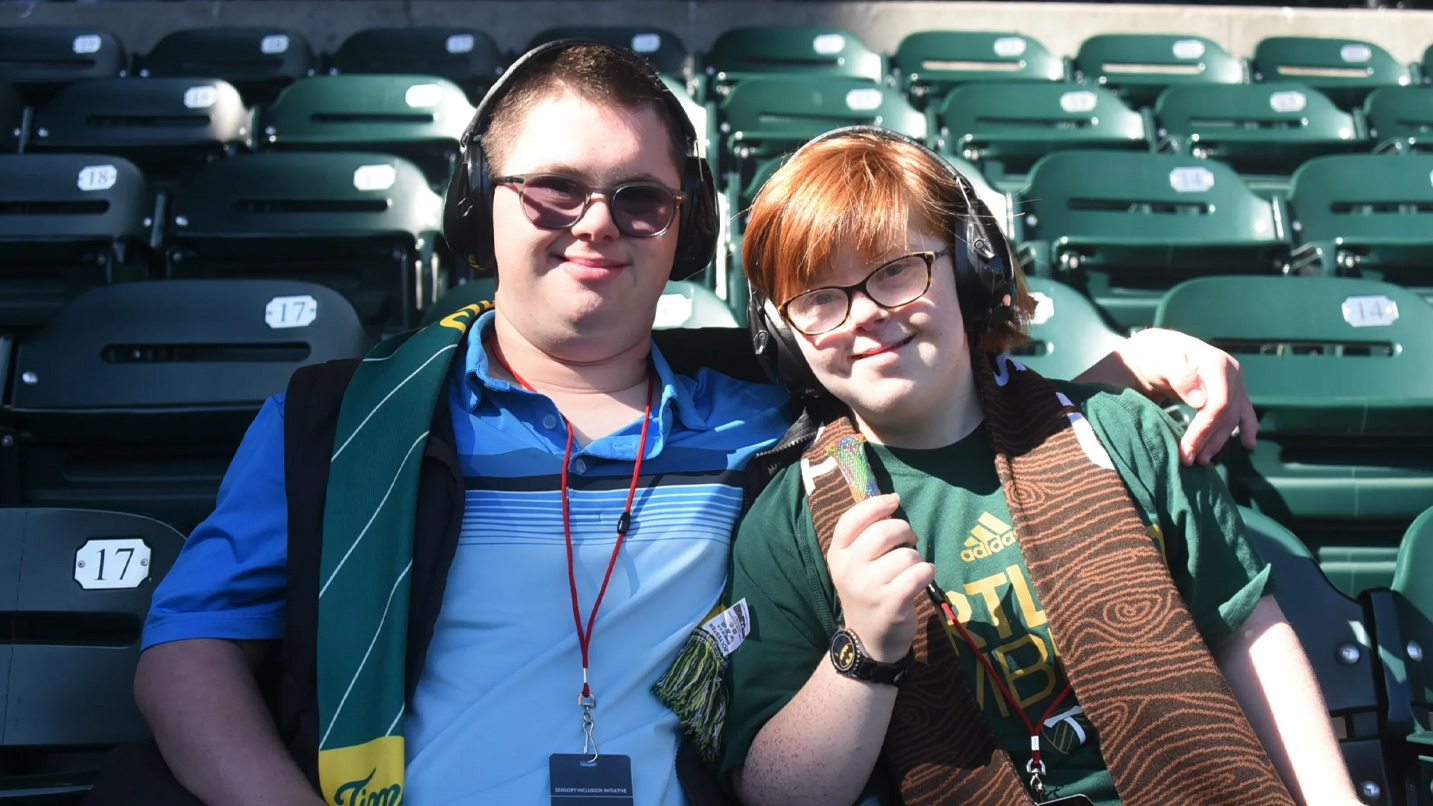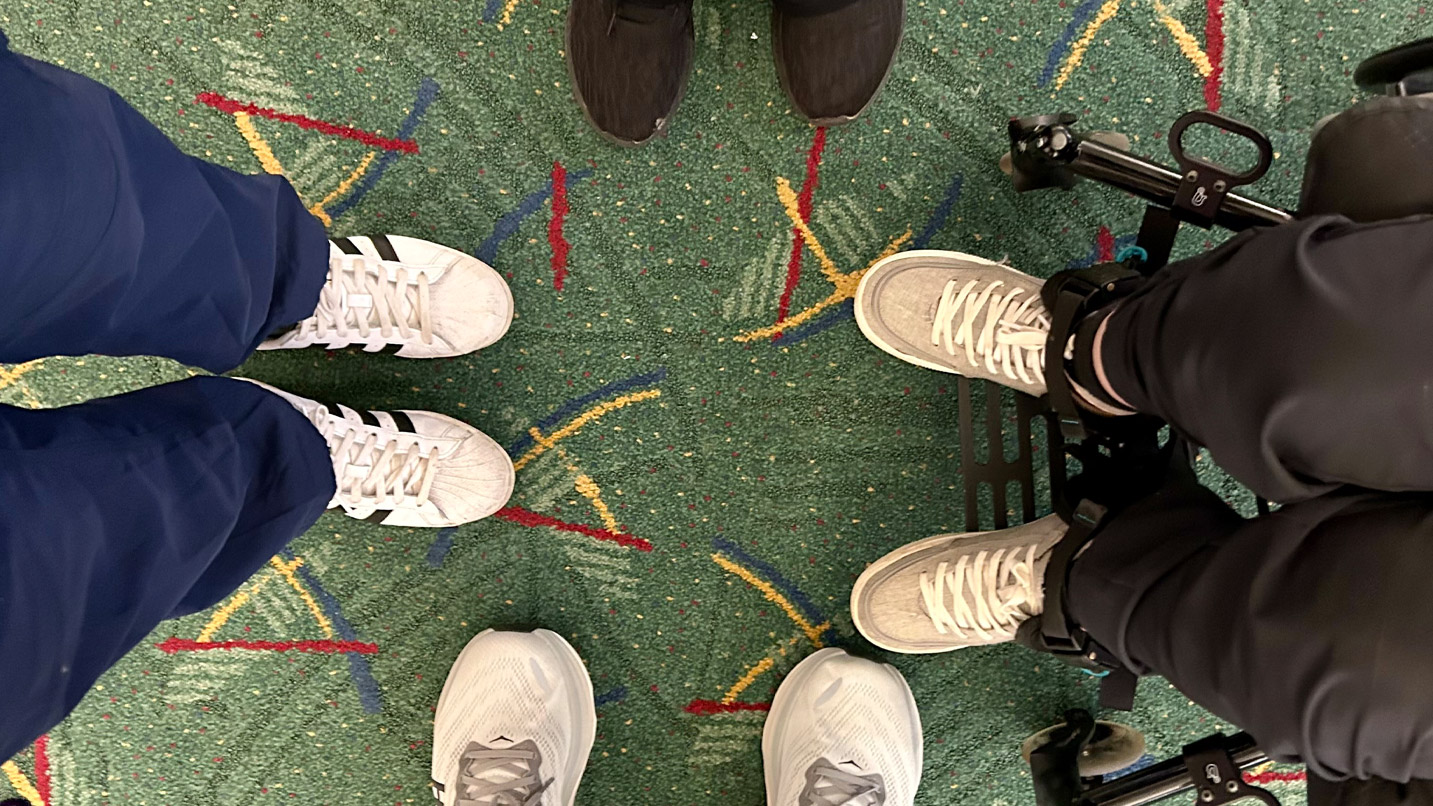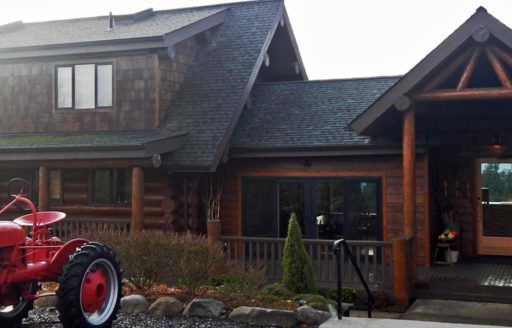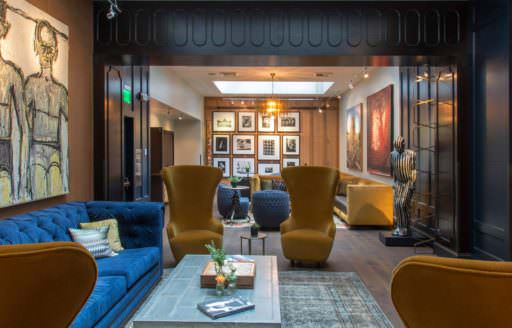Many visitors come to Portland for its vibrant culinary scene and cultural offerings, but it’s also doing some pretty great things as a beacon of inclusivity. Thoughtful citizens throughout the metro area have ensured a stay here is accessible and enjoyable. Here are some of the many offerings for travelers with unique needs.

Experience Vibrant Culture in Portland’s Urban Core
Waterfront parks, world-class performing arts centers, unique shops and delicious restaurants await you in the downtown core, where an open-to-all spirit reigns. Just off the tree-lined Park Blocks, the Portland Art Museum is undergoing renovations, and improvements such as upgraded gender-neutral bathrooms and an open-air passageway, which are expected to be completed in 2025. The calm and quiet Oregon Historical Society, across the street, is fully accessible with audio descriptions and hearing devices available at the front desk.
If bustling activity is more your style, head down to Tom McCall Waterfront Park. Under the Burnside Bridge each Saturday, the city’s creativity is on full display with crafts and food carts to satisfy all tastes. The Portland Saturday Market is an open-air market similar to the Portland Farmers Market — both operate largely in paved parking lots, making for an easy outing in a wheelchair. The farmers market operates at multiple locations, so it’s easy to find one near you.
In Washington Park, The Portland Japanese Garden has made significant improvements to make many areas of the garden accessible to wheelchair users. A free ADA-accessible shuttle takes you from its Welcome Center to the Cultural Village, next to the Umami Cafe and Tanabe Gallery. They also offer a free docent-led tour in American Sign Language with advance registration when purchasing tickets.
Lovers of theater will want to catch a show at one of the Portland’5 Centers for the Arts venues. You can find accessibility pages at Keller Auditorium, the Newmark Theatre, the Brunish Theatre, the Winningstad Theatre and the Arlene Schnitzer Concert Hall. All these venues have accommodations for visitors with disabilities, including bags with sensory gadgets designed to comfort or engage, audio descriptions and open captioning. Some additional accommodations may be available upon request.

From the Zoo to Professional Sports, Visit Portland’s Coolest Attractions
Portland is full of must-see attractions that prioritize accessibility and sensory-friendly environments. Hopscotch is an immersive art exhibit on the central eastside of Portland. The smooth concrete gallery is accessible for mobility devices, although the ball pit and trampoline would require a lift transfer. It’s best to call ahead to ask about your particular needs.
Visit the Oregon Zoo for more than 2,600 animals in habitats spread over 64 acres, built on the side of a gentle hill. Sensory bags are available, as well as detailed maps, accessibility features on the train and carousel, and wheelchairs and electric scooters for rent. Another welcome addition is the adult-size changing tables. (Find one in the restrooms near the Aviary Café.)
The Oregon Museum of Science and Industry, OMSI, is a large hall-like structure with an array of interactive science exhibits for all ages. They have audio services through Aira, which links visitors to a virtual visual interpreter. The large glass elevator has gorgeous views but can get packed on busy days. Use the secondary one next to the gift shop to access the second-floor exhibits.
The Portland Timbers stadium, Providence Park, has new audio feeds for assisted listening through the Listen EVERYWHERE app or your own mobile device. You can also request an escort to your assigned ADA seat. If basketball is more your thing, the Moda Center has those accommodations, too. These venues have limited parking, so be sure to get there well before start time to get settled, or use TriMet, which has a number of accommodations like wheelchair accessibility and assists for the blind.

Getting Here and Getting Around
Flying to Portland with a mobility device can be smooth with preparation, including signing up for TSA Cares or referencing your airline’s accessibility page. PDX Airport has a wide range of accessibility features, including a sensory room located near gate D10. Any ticket counter can offer a sunflower lanyard as part of the Hidden Disabilities project or contact the Autism Society of Oregon at least two weeks prior to departure. Look for many more accessibility upgrades in a $2 billion renovation slated to be finished in 2025.
Once here, TriMet — Portland’s award-winning public transportation system — makes ground transportation a breeze. All MAX Trains, streetcars and buses are wheelchair-accessible and have Braille signage and detectable warning tiles (the bumpy floor tiles that help designate places you need to pay attention). Stops are automatically announced. On the trains, no wheelchair securement is necessary — just pop the brake and enjoy the ride.
You can also hail a wheelchair-accessible taxi, Uber or Lyft. In addition to requesting wheelchair-accessible vehicles through the apps, the city of Portland hosts PDX WAV, a year-round, 24/7 service to connect riders with vehicles and trained drivers on demand.
Driving? Save some money by knowing that city-owned parking — on streets and in places like the Oregon Zoo — is free with a Disabled Person Parking permit. For even more, visit Travel Portland’s accessibility information.













